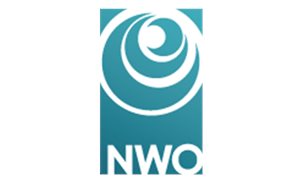11 October 2018
In an interdisciplinary and translational effort, this project will conduct human behavioral, pharmacological and neuroimaging studies. These will be combined with mechanistic studies in rodents to develop a novel comprehensive model of how stress hormones influence brain network mechanisms underlying the quality of long-term memories. We expect that the validation of this new model may have broad legal, educational and clinical implications.
 A new collaborative project with the Ruhr-University Bochum will investigate how stress hormones alter the course and quality of formation of long-term memories. The project is funded with 1 million euros from the Netherlands Organization for Scientific Research (NWO) and the German Research Foundation (DFG).
A new collaborative project with the Ruhr-University Bochum will investigate how stress hormones alter the course and quality of formation of long-term memories. The project is funded with 1 million euros from the Netherlands Organization for Scientific Research (NWO) and the German Research Foundation (DFG).
General versus detail memory
Human behavioral studies show contradictory results: Some studies indicate that emotional memories are remembered in a generalized manner, resulting in strong memory of the central theme of an experience. However, other studies report increased accuracy of detail memory. No integrative theory exists that explains these apparently conflicting findings.In an interdisciplinary and translational effort, this project will conduct human behavioral, pharmacological and neuroimaging studies. These will be combined with mechanistic studies in rodents to develop a novel comprehensive model of how stress hormones influence brain network mechanisms underlying the quality of long-term memories. We expect that the validation of this new model may have broad legal, educational and clinical implications.
ORA grant
This project was funded by an Open Research Area grant from the Netherlands Organization for Scientific Research (NWO) and the German Research Foundation (DFG), and is a collaboration between Benno Roozendaal, Marloes Henckens and Erno Hermans (Radboudumc / Donders Institute) and Oliver Wolf (Ruhr-University Bochum, Germany).Related news items

Three Vici grants for Radboudumc researchers
20 February 2020 Christian Beckmann, Sander Leeuwenburgh and Annette Schenck each receive a 1.5 million euro Vici research grant from NWO. go to page
Judith Homberg appointed Professor of Translational Neuroscience
20 March 2019 Judith Homberg has been appointed Professor of Tanslational Neuroscience effective 1 February 2019. go to page
Ultrahigh-resolution MRI reveals structural brain differences in serotonin transporter knockout rats after sucrose and cocaine self-administration
20 February 2019 In Addiction Biology Peter Karel and Judith Homberg showed that rats lacking the serotonin transporter show increased cocaine, but unaltered sucrose, self-administration. go to page
Stress hormone may improve exposure therapy for patients suffering from PTSD
7 February 2019 Exposure therapy is effective in about half of the patients with PTSD. This percentage may possibly increase due to the targeted use of cortisol in the right patients. Benno Roozendaal received a TOP subsidy from ZonMw to investigate this. go to page
MRI scans reveal brain profile of concussions Over fifty Canadian rugby players followed
2 January 2019 Researchers from Radboudumc and Western University Canada performed MRI scans in more than fifty female rugby players. They show a deviant pattern in the brain after an acute concussion. go to page
